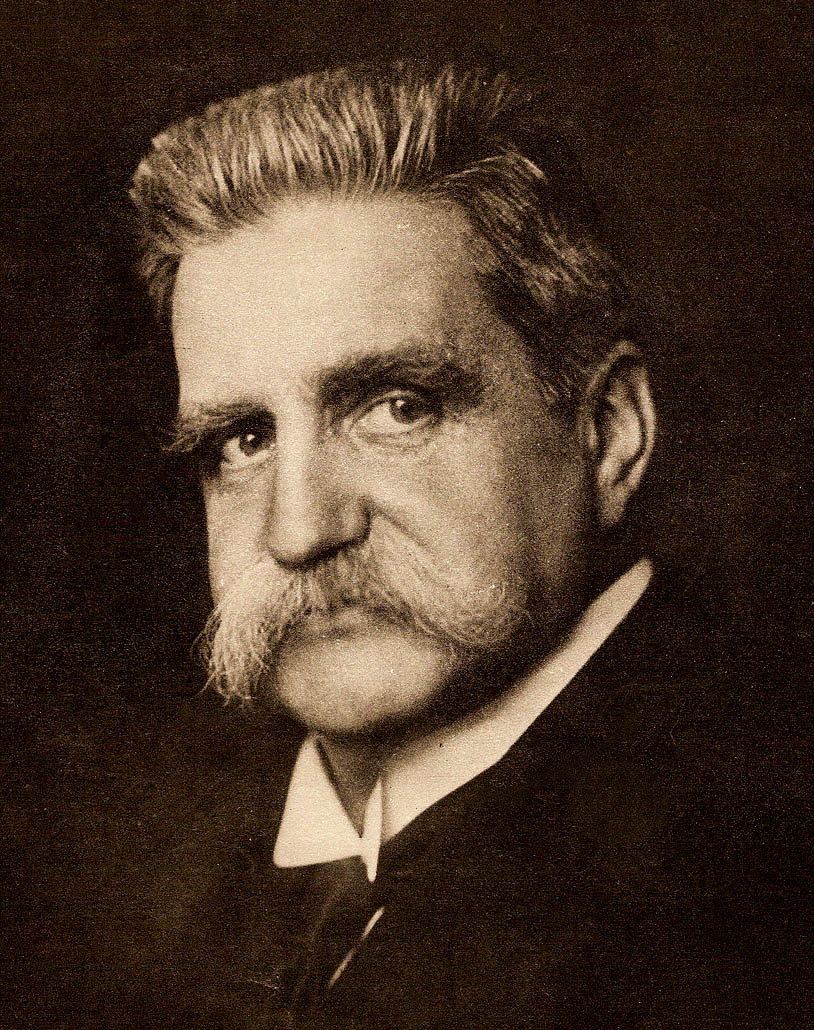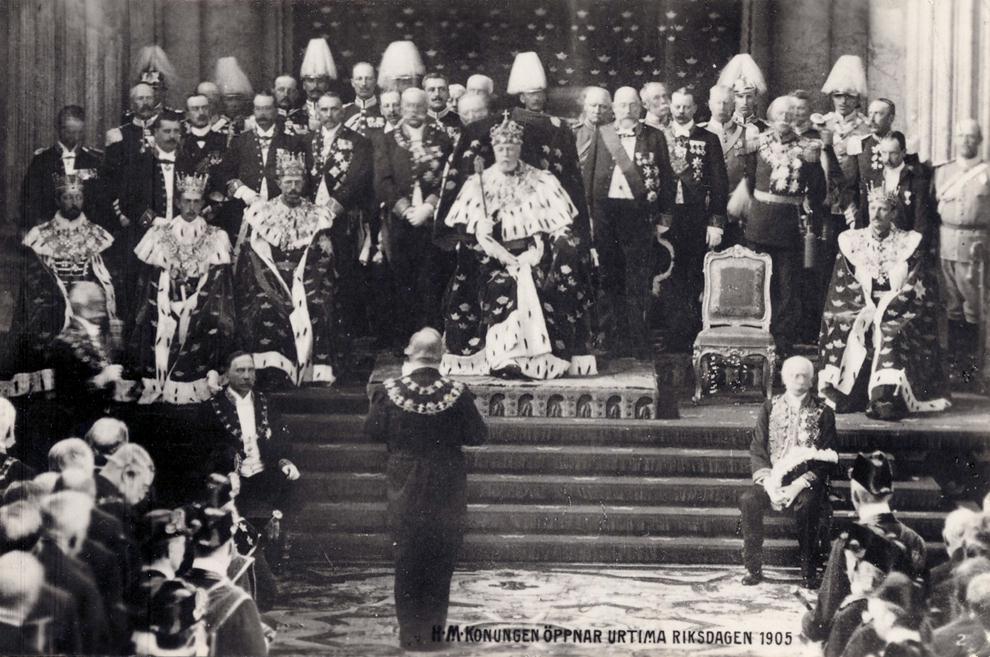|
Första Kammaren
The (literally "First Chamber", often abbreviated 'FK'; referred to in some non-Swedish sources as the Senate) was the upper house of the bicameral Riksdag of Sweden between 1866 and 1970 that replaced the Riksdag of the Estates. During the bicameral period, the lower house of the Riksdag was the Andra kammaren (literally "the Second Chamber"). Both chambers had generally similar and parallel powers. At the time of its abolition, the First Chamber had 151 members. These were indirectly elected for eight-year terms of office, from amongst the county councils (''landsting'') and city councils (''stadsfullmäktige''), which formed electoral colleges, some of which holding elections every year, with local elections being held every four years in even years when elections to the Second Chamber were not due to be held. During a large portion of the long tenure of power for the Social Democrats (between 1932 and 1976), the party remained in control of legislation thanks to its stro ... [...More Info...] [...Related Items...] OR: [Wikipedia] [Google] [Baidu] |
Coat Of Arms Of Sweden
The coat of arms of the Kingdom of Sweden () is the arms of dominion of the Monarchy of Sweden, King of Sweden. It has a greater and a lesser version. The shield displays the "Three Crowns of Sweden" quartering the "Lion of Bjälbo", with an inescutcheon overall of the House of Vasa impaling the House of Bernadotte. Regulated usage The usage of the coats of arms is regulated by Swedish Law, Swedish Code of Statutes, Act]1970:498which states (in unofficial translation) that "in commercial activities, the coats of arms, the flag or other official insignia of Sweden may not be used in a trademark or other insignias for products or services without proper authorisation. This includes any mark or text referring to the Swedish State which this can give the commercial mark a sign of official endorsement. This includes municipal coats of arms which are registered." Any representation consisting of three crowns ordered two above one are considered to be the lesser coat of arms, and its ... [...More Info...] [...Related Items...] OR: [Wikipedia] [Google] [Baidu] |
Swedish Social Democratic Party
The Swedish Social Democratic Party, formally the Swedish Social Democratic Workers' Party ( , S or SAP), usually referred to as The Social Democrats ( ), is a social democratic political party in Sweden. The party is member of the Progressive Alliance and the Party of European Socialists. Founded in 1889, the SAP is the country's oldest and currently largest party. From the mid-1930s to the 1980s, the Social Democratic Party won more than 40% of the vote. From 1932 to 1976, the SAP was continuously in government. From 1982 to 2022, the party was in government with the exception of the periods 1991–1994 and 2006–2014. Since 2022, the party has been out of government. It participates in elections as "The Workers' Party – The Social Democrats" ( ). The first female PM in Swedish history, Magdalena Andersson, is the current leader of the Social Democratic Party. History Founded in 1889 as a member of the Second International, a split occurred in 1917 when the left soci ... [...More Info...] [...Related Items...] OR: [Wikipedia] [Google] [Baidu] |
1866 Establishments In Sweden
Events January * January 1 ** Fisk University, a historically black university, is established in Nashville, Tennessee. ** The last issue of the abolitionist magazine '' The Liberator'' is published. * January 6 – Ottoman troops clash with supporters of Maronite leader Youssef Bey Karam, at St. Doumit in Lebanon; the Ottomans are defeated. * January 12 ** The ''Royal Aeronautical Society'' is formed as ''The Aeronautical Society of Great Britain'' in London, the world's oldest such society. ** British auxiliary steamer sinks in a storm in the Bay of Biscay, on passage from the Thames to Australia, with the loss of 244 people, and only 19 survivors. * January 18 – Wesley College, Melbourne, is established. * January 26 – Volcanic eruption in the Santorini caldera begins. February * February 7 – Battle of Abtao: A Spanish naval squadron fights a combined Peruvian-Chilean fleet, at the island of Abtao, in the Chiloé Archipelago of southern Chile. * February 13 – T ... [...More Info...] [...Related Items...] OR: [Wikipedia] [Google] [Baidu] |
Political History Of Sweden
Sweden, formally the Kingdom of Sweden, is a Nordic countries, Nordic country located on the Scandinavian Peninsula in Northern Europe. It borders Norway to the west and north, and Finland to the east. At , Sweden is the largest Nordic country by both area and population, and is the List of European countries by area, fifth-largest country in Europe. Its capital and largest city is Stockholm. Sweden has a population of 10.6 million, and a low population density of ; 88% of Swedes reside in urban areas. They are mostly in the central and southern half of the country. Sweden's urban areas together cover 1.5% of its land area. Sweden has a diverse Climate of Sweden, climate owing to the length of the country, which ranges from 55th parallel north, 55°N to 69th parallel north, 69°N. Sweden has been inhabited since Prehistoric Sweden, prehistoric times around 12,000 BC. The inhabitants emerged as the Geats () and Swedes (tribe), Swedes (), who formed part of the sea-faring peopl ... [...More Info...] [...Related Items...] OR: [Wikipedia] [Google] [Baidu] |
Legislative Buildings In Europe
A legislature (, ) is a deliberative assembly with the legal authority to make laws for a political entity such as a country, nation or city on behalf of the people therein. They are often contrasted with the executive and judicial powers of government. Legislatures can exist at different levels of government–national, state/provincial/regional, local, even supranational (such as the European Parliament). Countries differ as to what extent they grant deliberative assemblies at the subnational law-making power, as opposed to purely administrative responsibilities. Laws enacted by legislatures are usually known as primary legislation. In addition, legislatures may observe and steer governing actions, with authority to amend the budget involved. The members of a legislature are called legislators. In a democracy, legislators are most commonly popularly elected, although indirect election and appointment by the executive are also used, particularly for bicameral legislat ... [...More Info...] [...Related Items...] OR: [Wikipedia] [Google] [Baidu] |
20th Century In Sweden
This is a timeline of Swedish history, comprising important legal and territorial changes and political events in Sweden. To read about the background to these events, see History of Sweden. See also the list of Swedish monarchs This list records the Monarchy of Sweden, monarchs of Sweden, from the late Viking Age to the present day. Sweden has continuously been a monarchy since the country's consolidation in the Viking Age and early Middle Ages, for over a thousand year ... and list of prime ministers of Sweden. 1st century – 5th century 6th century – 9th century 10th century 11th century 12th century 13th century 14th century 15th century 16th century 17th century 18th century 19th century 20th century 21st century See also * Timeline of Faroese history * Timeline of Icelandic history ;Cities in Sweden * Timeline of Gothenburg * Timeline of Stockholm history References Further reading * * * External links * {{citation, work=BBC Ne ... [...More Info...] [...Related Items...] OR: [Wikipedia] [Google] [Baidu] |
Defunct Upper Houses
{{Disambiguation ...
Defunct may refer to: * ''Defunct'' (video game), 2014 * Zombie process or defunct process, in Unix-like operating systems See also * * :Former entities * End-of-life product * Obsolescence Obsolescence is the process of becoming antiquated, out of date, old-fashioned, no longer in general use, or no longer useful, or the condition of being in such a state. When used in a biological sense, it means imperfect or rudimentary when comp ... [...More Info...] [...Related Items...] OR: [Wikipedia] [Google] [Baidu] |
Första Kammaren
The (literally "First Chamber", often abbreviated 'FK'; referred to in some non-Swedish sources as the Senate) was the upper house of the bicameral Riksdag of Sweden between 1866 and 1970 that replaced the Riksdag of the Estates. During the bicameral period, the lower house of the Riksdag was the Andra kammaren (literally "the Second Chamber"). Both chambers had generally similar and parallel powers. At the time of its abolition, the First Chamber had 151 members. These were indirectly elected for eight-year terms of office, from amongst the county councils (''landsting'') and city councils (''stadsfullmäktige''), which formed electoral colleges, some of which holding elections every year, with local elections being held every four years in even years when elections to the Second Chamber were not due to be held. During a large portion of the long tenure of power for the Social Democrats (between 1932 and 1976), the party remained in control of legislation thanks to its stro ... [...More Info...] [...Related Items...] OR: [Wikipedia] [Google] [Baidu] |
History Of The Riksdag
The Riksdag is the national legislature of Sweden. However, when it was founded in 1866 Sweden did not have a Parliamentarism, parliamentary system of government. The national legislatures of Riigikogu, Estonia and Parliament of Finland, Finland are also called "Riksdag" in Swedish language, Swedish. The Old Riksdag Origin The precursor to the modern Riksdag was the Riksdag of the Estates (). Of ancient origin in the Viking Thing (assembly), Things, the 1435 meeting in the city of Arboga is considered the first Riksdag, however only three of the estates were probably present the Swedish nobility, nobility, the clergy and the Bourgeoisie, burghers. This informal representation was formalized in 1527 by King Gustav I of Sweden to include representatives of all the four Estates of the realm#Sweden and Finland, estates, which historically reflected the lines of division in Swedish society: the nobility, the clergy, the burgher (title), burghers and the peasantry. This ingatherin ... [...More Info...] [...Related Items...] OR: [Wikipedia] [Google] [Baidu] |
The American Political Science Review
The ''American Political Science Review'' (''APSR'') is a quarterly peer-reviewed academic journal covering all areas of political science. It is an official journal of the American Political Science Association and is published on their behalf by Cambridge University Press. APSR was established in 1906 and is the flagship journal in political science. Abstracting and indexing The journal is abstracted and indexed in the Social Sciences Citation Index, ''Current Contents'' / Social & Behavioral Sciences, International Bibliography of Periodical Literature, and the International Bibliography of Periodical Literature. According to the ''Journal Citation Reports'', the journal has a 2016 impact factor of 3.316, ranking it 5th out of 165 journals in the category "Political Science". Editorial team The first three managing editors were W. W. Willoughby (1906–1916), John A. Fairlie (1917–1925), and Frederic A. Ogg (1926–1949). For the 2020–2024 term, the journal is co-led ... [...More Info...] [...Related Items...] OR: [Wikipedia] [Google] [Baidu] |
Municipal Council (Sweden)
A municipal council () is the decision-making body governing each of the 290 municipalities of Sweden. Though the Swedish Local Government Act () uses the term "municipal assembly" in an English translation of the Act, "municipal council" and even "city council" are used as well, even in official contexts in English by several of Sweden's largest municipalities, including Stockholm, Malmö, and Gothenburg.City of Göteborg: "The City Council" (English) This system of administrative division was established with the municipal reform of 1971. Prior to this reform, municipal governance in Sweden was conducted by either a (municipal council in rural areas) or a (city council in urban areas). The number of members in each assembly can range from 21 to 101, depending on the population of the municipality in question. Members of the assemblies are chosen to serve for four-year terms through elections using a party-list proportional representation Party-list proportional represent ... [...More Info...] [...Related Items...] OR: [Wikipedia] [Google] [Baidu] |
Upper House
An upper house is one of two Legislative chamber, chambers of a bicameralism, bicameral legislature, the other chamber being the lower house. The house formally designated as the upper house is usually smaller and often has more restricted power than the lower house. A legislature composed of only one house (and which therefore has neither an upper house nor a lower house) is described as unicameralism, unicameral. History While the Roman Senate, senate of the ancient roman kingdom 755 BC was the first assembly of aristocrats counseling the king, the first upper house of a bicameral legislature was the medieval House of Lords consisting of the archbishops, bishops, abbots and nobility, which emerged during the reign of King Edward III around 1341 when the Parliament clearly separated into two distinct Debating chamber, chambers, the House of Commons of England, House of Commons, consisting of the shire and borough representatives, and the House of Lords. 1808 Spain adopted ... [...More Info...] [...Related Items...] OR: [Wikipedia] [Google] [Baidu] |





